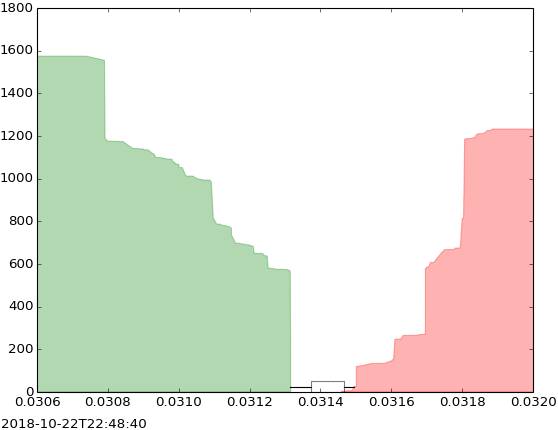A simple example of a high-frequency trading strategy
Market making and high-frequency trading example
High-frequency trading firms are important to the financial markets because they provide liquidity, allowing market participants easily buy or sell financial instruments.
It can also be extremely profitable to be a market maker (I’ve heard rumors of Citadel Securities having a Sharpe ratio in excess of 10 deploying these types of strategies).
Exchanges often have contracts with high-frequency trading firms such as Citadel Securities, Jane Street, Optiver, IMC, Susquehanna, etc, to provide liquidity for financial instruments on their exchanges.
Market making example
Here is a simplified example of how a high-frequency firm can generate profit through market making strategies.
Suppose we have the following scenario orderbook on two exchanges A and B, where exchange A has less liquidity than exchange B. Our firm has been assigned as the market maker for exchange A and we currently have a limit order to buy 30 shares at $98 and a limit order to sell 30 shares at $102 (see ← below):
Exchange A
ask2 $102, quantity 30 ←
ask1 $101, quantity 9
bid1 $99, quantity 5
bid2 $98, quantity 30 ←
Exchange B
ask2 $102, quantity 75
ask1 $101, quantity 50
bid1 $99, quantity 45
bid2 $98, quantity 30
Now suppose there is a large market order to sell 35 shares on exchange A (a market order means to execute at the best market price, regardless of what the price is).
Then our limit order to buy 30 shares at $98 will be filled (5 shares filled at $99 with the remaining shares filled at our $98 bid order). So we have just bought 30 shares at $98 and now we need to hedge this exposure to remain market neutral. We can then go to the more liquid exchange B and sell our 30 shares at the best bid price of $99. Therefore, we bought 30 shares at $98 on exchange A and sold 30 shares at $99 on exchange B and so we made ($99-$98) x 30 = $30. This process continuously repeats throughout the trading day.
Conclusion
Execution speed is vital for the profitability of these strategies. If your execution is not fast enough, the market will move and you will no longer be able to trade at the optimal prices.
This is why high-frequency trading firms will go to extremes even to improve their execution speeds by microseconds.
Interview Guide
I’m compiling a guide for Quantitative Finance interviews. It will include:
Valuable tips on securing interviews efficiently and avoiding the time-consuming process of applications
A detailed overview of the interview process, including best practices and strategies for success.
A comprehensive interview preparation roadmap
Technical practice questions including: Probability & Statistics, Finance & Derivatives, Python, Algorithms, Linear Algebra, and more.
Insightful questions to ask your interviewer to show your interest.
Proven ways to excel in HR interviews.
My real-life interview experiences + questions that were asked.
If you’d like to ace your next Quant interview, join the waiting list: here
Other Media
Twitter: @quant_prep
Medium: @quant_prep
LinkedIn: Quant Prep
Free Stoikov Market Making Code: Here
Free BTC Options Notebook: Here
Free CV template: Here




